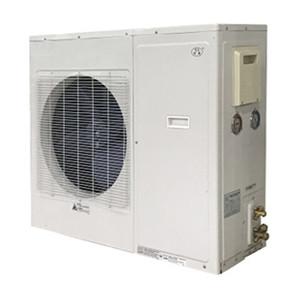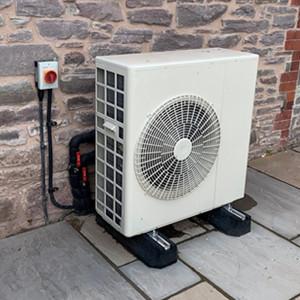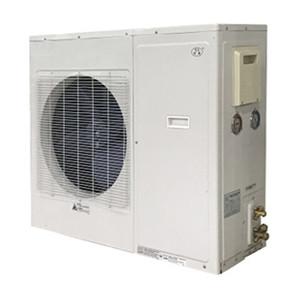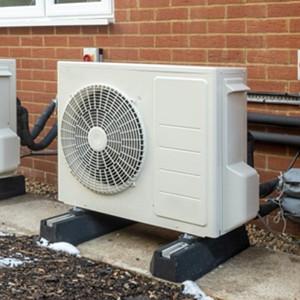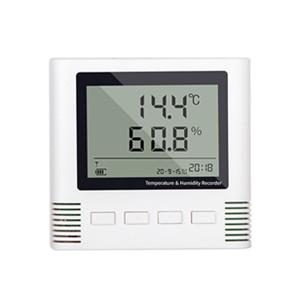Do I Need new Radiators for an Air Source Heat Pump?
Many customers have expressed to us their fear of having to upgrade their radiators when considering an air source heat pump. In fact, sometimes this puts them off the idea altogether – but it doesn’t have to be!
Here’s what you need to know if you’re worried.
You don’t need to upgrade your radiators
First, let’s get one thing straight from the start.
Unless your radiators are traditional, 30+ year old models, you don’t always need to upgrade your radiators for an air source heat pump system to work, it just might not work as efficiently as it would otherwise.
Even with these outdated panel radiators, a heat pump system will still work, but it may not due to the added cost.
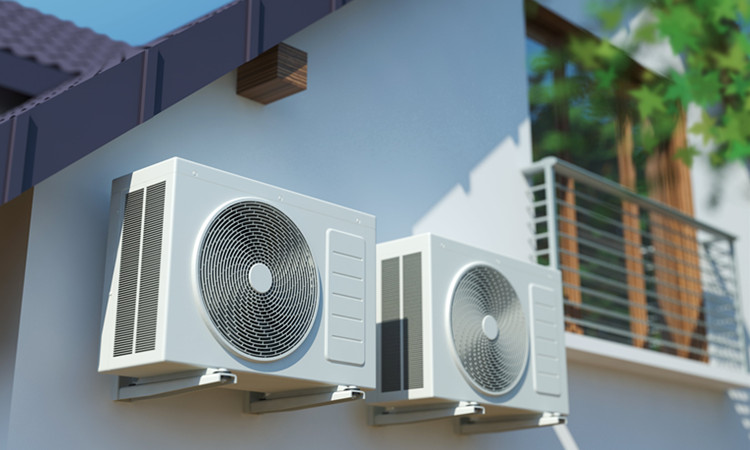
Radiator types
To understand why, we need to take a quick look at the types of water based radiators. The main categories are ‘traditional’ panel radiators and ‘convection’ panel radiators. Let’s focus on the average room heating radiator and forget about niche radiators like towel rack radiators for now.
When you think of a 'Victorian radiator' you probably think of a conventional radiator, which tends to be a large block, usually made of metal, that is heated by hot water from a boiler. The heat is then transferred to the room via convection.
One common type is a single panel conventional radiator, which is often found in homes built from the 50s and 60s to the mid 90s - they are usually a thin flat panel. These radiators tend to have a lower heat output due to their smaller size, but also have the advantage of being able to fit into a small space.
Conventional types of radiators require a lot of energy to heat in the first place, as depending on the size of the building structure, windows and doors, quite a bit of energy is required to generate enough heat to keep a room comfortably warm - so they can run adequately with a gas boiler, but will seriously affect the efficiency of an air source heat pump.
Convection radiators, on the other hand, are likely to have much less of an impact on efficiency.
Convection radiators are radiators with a grille on the top - if you look down through the grille you will be able to see thin metal fins that meander along the length of the radiator. These radiators are usually available in single, double or triple panel models. Convector radiators are much better at outputting heat from the radiator pipes because they pack a lot of surface area into a small space.
Essentially, this means there is more surface area to dissipate the heat.
Why do you need to upgrade your heat pump's radiators?
The key to making an air source heat pump work as efficiently as possible is to keep the heat of the water flowing through the heating pipes (we call this the 'flow temperature') as low as possible in order to comfortably heat your home.
When a gas boiler starts up, the gas ignites and heats the water to 80°C or more, which is then pumped through the system pipes to the radiators. This high output may seem like a benefit, but it is actually often necessary because the radiators have a lower output.
Another problem is that because gas boilers operate at higher flow temperatures, homes with modern radiators tend to experience frequent cycling. That is, the boiler will turn on, output a lot of heat for a short period of time, then turn off again until the heat dissipates and the cycle repeats.
Many customers find this very uncomfortable during the coldest months! They get hit with a heat wave, then it starts to get cold again, and the cycle repeats. This works for gas boilers, but not for heat pumps!
Because heat pumps work by using the temperature difference with the outside air, their maximum output temperature is more limited than gas boilers, but this also means they are able to provide a constant temperature for a longer period of time, so you can avoid the problem of inefficiencies in the heating cycle.
For example, if you are able to set the flow temperature of your air source heat pump to 45°C, and your radiators are able to release heat efficiently, then your heat pump can run continuously with lower energy consumption.
You can choose a high output heat pump and upgrade your radiators later
If you can't afford the extra cost of upgrading your radiators at the moment, you can also choose to install a high temperature air source heat pump and run a higher flow temperature in your home's ductwork.
You can then choose to upgrade to more efficient radiators in the future and reduce the flow temperature to a more efficient level to maximize energy and cost savings.
However, as we explain in detail below, you can also factor your radiator upgrade into your financing plan now.
Benefits of upgrading radiators during heat pump installation
However, whenever we think there are benefits to upgrading, we always recommend upgrading radiators before installation, for the following reasons.
1. Effective system planning
Firstly, this means that the system designer is able to effectively plan the system output and operating efficiency by pairing a heat pump and radiator specifically suited to your home - so you generally get a more efficient system as a result.
2. Effective project management
Secondly, while replacing radiators will increase the total time the installer is on site, installing them as part of the same project allows the engineer to plan their time better to complete the work as quickly as possible.
Hiring a separate engineer years later usually means they have to waste time familiarising themselves with your home's system, the heat pump installation and the necessary type and heat output of the radiators. And there's no guarantee they'll be a qualified heat pump expert.
3. Reduced running costs
Keeping your heat pump system running at maximum efficiency all year round means you can save a lot on your energy bills. Of course, this depends on several factors.
For example: if you replace an old G-rated gas boiler and keep your energy rate the same, you could save up to £340 a year on your energy bills. For more information on the factors that influence heat pump efficiency, read the dedicated efficiency page here.
4. Cost can be incorporated into a financing plan
If approved by our lending partners, you can spread the cost of your heat pump investment into your monthly repayments over a number of years. This includes the entire system upgrade. We have worked out a deal with our lending partners to agree to cover the cost of your radiator upgrade so you can do it all at once and pay it off in the best way you can afford.
Need advice on a heat pump upgrade?
With over 20 years’ experience at the forefront of the heat pump industry, Leomon prides itself on a fully bespoke service that is tailored to your specific requirements and home, so we are always available to discuss any questions you may have or concerns you may have about investing in a heat pump system.
We have the best heat pump experts. Contact us for more professional advice and a free quote.

